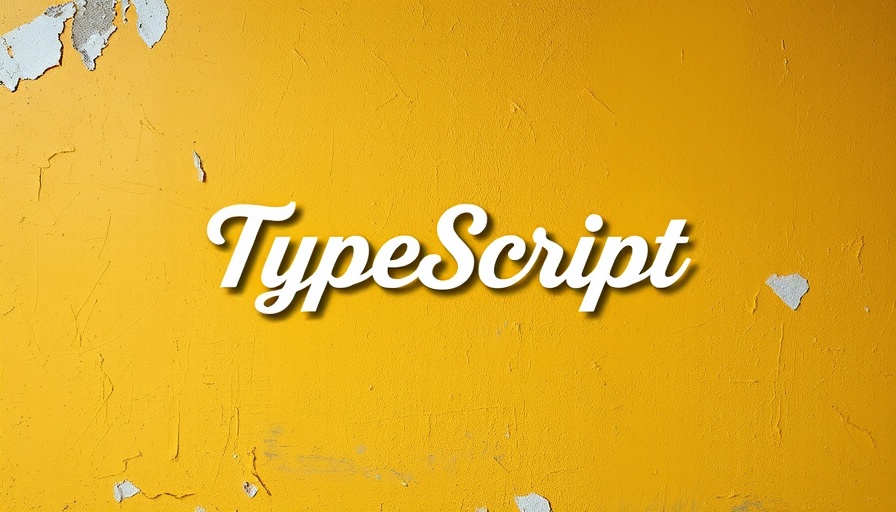
Understanding the Power of Function Parameters in TypeScript
As businesses evolve in the digital age, integrating robust coding practices becomes crucial. Among the many programming languages available, TypeScript stands out due to its ability to enhance JavaScript's capabilities with strong typing. One essential aspect that TypeScript developers must grasp is the use of functions as parameters.
What Can Function Parameters Do?
Function parameters allow developers to create more flexible and reusable code. In TypeScript, passing functions as parameters means you can define behavior that can change with different function inputs. This not only improves the modularity of your code but also ensures better maintainability.
A Step-by-Step Guide to Passing Functions as Parameters
Let's break down the process of passing functions as parameters with a practical example. Consider a scenario where you have a base function that handles arithmetic operations. By passing different functions representing these operations (addition, subtraction, etc.), you can create a more versatile application.
function calculate(a: number, b: number, operation: (x: number, y: number) => number): number { return operation(a, b);
} const add = (x: number, y: number) => x + y;
const subtract = (x: number, y: number) => x - y; console.log(calculate(5, 3, add)); // Outputs: 8
console.log(calculate(5, 3, subtract)); // Outputs: 2
This simplistic example demonstrates how the calculate function effectively utilizes other functions passed as parameters to execute different operations without modification to its core logic.
Why Businesses Should Leverage TypeScript's Function Parameters
For professionals in tech-heavy industries—especially web development, digital marketing, and data analysis—understanding TypeScript opens doors to more sophisticated applications. As automation becomes a notable trend in marketing strategies, knowing how to manipulate functions can lead to better marketing technology utilization.
Current Trends in Digital Marketing and Development
As TypeScript gains traction, aligning your knowledge of its capabilities with contemporary digital marketing trends—like optimizing user experience—becomes vital. Learning to implement TypeScript can strengthen the foundation of your business’s online presence, especially as e-commerce continues to climb.
Building Your Skillset for the Future
The ability to understand and implement functions in TypeScript is a significant asset for any developer. As businesses increasingly turn data-driven, being able to seamlessly integrate programming into digital marketing strategies will set you apart. Whether through enhanced analytics or user journey optimization, foundational knowledge in TypeScript will empower you to refine your projects and campaigns.
Call to Action: Embrace the Future of Development
If you want to stay ahead in the competitive digital landscape, start exploring TypeScript and its function capabilities today. Consider enrolling in online courses or joining coding boot camps that emphasize practical application while you learn. The future of development is at your fingertips—seize the opportunity!
 Add Row
Add Row  Add
Add 




Write A Comment